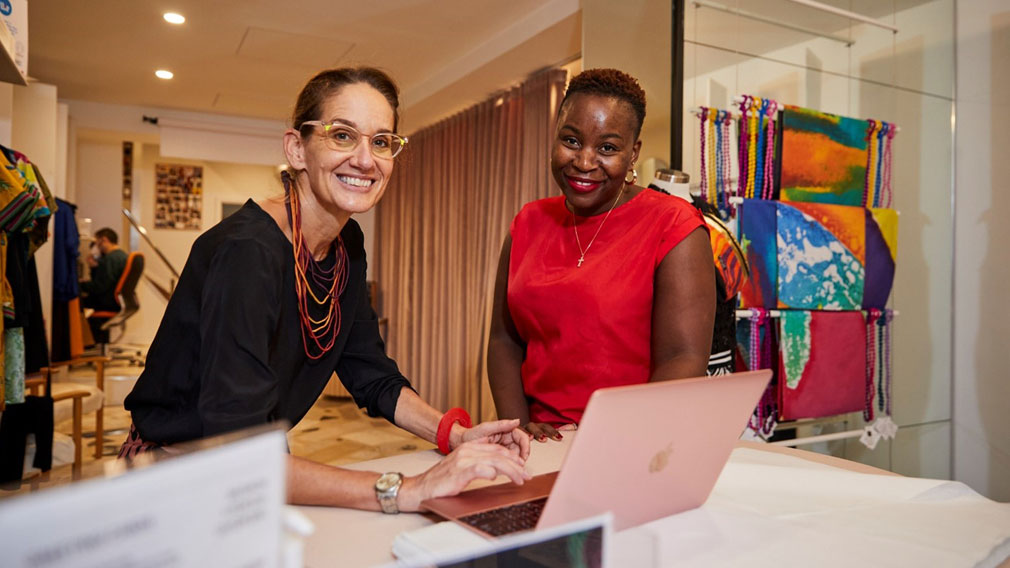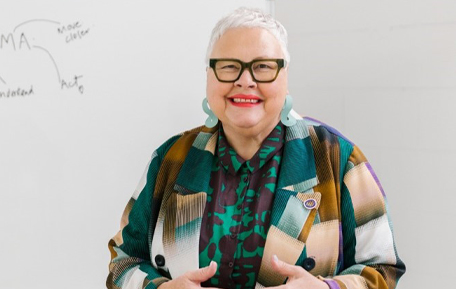The power of volunteering: an antidote to loneliness

Abigail Muringani (right), Westpac employee and community volunteer, pictured with CEO of Westpac Foundation partner The Social Outfit, Camilla Schippa (left). (Flashpoint Labs)
While the World Health Organisation has officially declared the end of the COVID-19 global health emergency, many people are still struggling with the impact the pandemic has had on our mental health and wellbeing.
Almost half of the Australian population reported experiencing feelings of loneliness and isolation during the onset of the pandemic in 2020 according to Volunteering Australia, up from around one in four prior to the lockdowns.
Mary Freer, Westpac Social Change Fellow and author of Compassion Revolution Start Now* Use What You have* Keep Going*, says that volunteering offers a pathway to finding new social connections that can help to alleviate that sense of loneliness.
“People are feeling more disconnected than ever before. Our nervous systems are dysregulated; people are a little more anxious, a little more agitated, workplace incivility has risen, and our lives feel a little less spacious,” Freer says in an interview with Westpac Wire.
“We now need to think about how to expand our lives again, and I think that volunteering is one way to get there."
“Pro-social behaviour leads to an elevation in mood and has great benefits on mood and depression. Volunteering means forming relationships with people you didn’t know before and poses an opportunity to get to know yourself better, too,” says Freer.

Mary Freer, Westpac Social Change Fellow and author of the Compassion Revolution. (Supplied)
This year, Volunteering Australia released its new National Volunteering Strategy; a 10-year plan to boost the sector, which took a hit during the pandemic lockdowns. The report echoes Freer’s sentiments, citing a clear link between volunteering and better life satisfaction, happiness, self-esteem, and perceived mental health.
The report found that the number of volunteers declined from 36 per cent of the population in 2019, to about 27 per cent in 2022. The drop comes as demand continues to rise, with 83 per cent of volunteer-involving organisations needing more volunteers.
People who do volunteer find great value in the experience, says Dr Roxane Foulser-Piggott, Westpac Social Change Fellow and founder of Freddy Match, a platform that uses a unique algorithm to link over 25,000 volunteers with volunteering opportunities across Australia.
“The meaningful and profound comments they make about feeling like they’re helping others and contributing to a higher purpose – that’s the true indicator that volunteering has a positive impact,” says Foulser-Piggott, who launched Freddy Match following the tragic loss of her two-week old baby Freddy.
But since the lockdowns, Foulser-Piggott has noticed that it takes a lot more effort to get people to volunteer. Volunteering Australia highlights that opportunities to engage in meaningful volunteering must be visible and accessible to help tackle loneliness, especially for those most susceptible.
Dr Roxane Foulser-Piggott, Westpac Social Change Fellow and founder of volunteer matching platform, Freddy Match. (Grant Weston)
Freer says that organisations have a role to play in engaging their employees through volunteering.
“Workplace volunteering programs benefit everyone. They underscore the core values of organisations and foster team cohesiveness.”
When engaging their teams in volunteering efforts, Freer highlights that it’s important that organisations remain authentic.
“It needs to be real. We need to really communicate why we chose the effort, and make sure it aligns with the organisations’ values,” Freer says.
“There’s a disconnect when you encourage volunteering at, say, a domestic violence organisation, when there’s no flexibility in your organisation for domestic violence leave. When there is a clear, authentic connection, that’s when you’ve found the antidote to loneliness and detachment in the workplace.”
Abigail Muringani, a Senior Manager in Westpac’s Prudential Governance team, says that volunteering can also be a way to see the tangible change your organisation makes in the broader community.
“Not being customer facing, you don’t always get opportunities to engage more directly with the community,” says Muringani, who has been volunteering since her high school days.
“Focusing on other people fosters a sense of wellbeing; it triggers more gratitude for what we often take for granted.”
With the shape of volunteering changing over the last few years, Muringani felt the positive impact of skilled volunteering first-hand during her time working with The Social Outfit, an ethical fashion brand that employs and trains people from refugee and new migrant communities. Supported by the Westpac Foundation, The Social Outfit creates pathways to full-time employment for people who previously faced barriers to employment in Australia.
“Working with The Social Outfit made me realise how the dignity of work has such a positive impact on the way women view themselves, their improved self-esteem, and feeling like they can control their destiny to some extent.”
Muringani has worked with The Social Outfit on two occasions, helping with their financial and business models, budgets, risk management, and investment readiness, with the goal of securing grant funding.
“Social enterprises may not have all the skillsets required to run a business because they aren’t working for a profit. Doing something that’s part of my skillset, like reviewing financials and risk management frameworks, allows them to tap into knowledge they may not otherwise have access to.”
With the sustainability of the volunteering sector at risk, Volunteering Australia says that ensuring volunteering thrives in the coming years will not only be beneficial, but crucial to safeguarding mental health in Australia.
“Doing good is a rewarding feeling, knowing what you’ve done has contributed to a positive outcome for someone is powerful,” Muringani says.
Foulser-Piggott agrees, and above all, she says that volunteering is simply fun.
“Fun is such a simple word. But really, it means you’re doing something not because you should do it, but because you want to. And everyone benefits in the end.”


